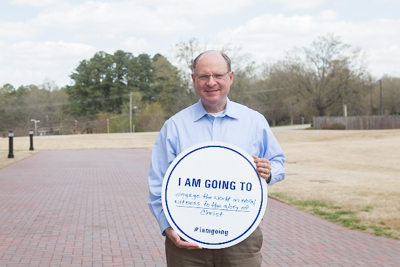Faculty Q & A with Daniel Heimbach
January 19, 2017

 By CHRIS MARTIN
By CHRIS MARTIN
Q: Tell us about yourself.
A: I am privileged to serve as senior professor of Christian ethics at Southeastern. I was born under the Communists in China to missionary parents who stayed with the church in China after most other missionaries fled the country for safety.
Q: How did you come to SEBTS?
A: I was invited to join the faculty by President Paige Patterson in 1993. I have been here 21 years so far. I arrived just after the amazing turn around that took place on this campus because of the Southern Baptist Resurgence.
Q: When people ask you, “What do you do at Southeastern,” what is your response?
A: As a professor and scholar, I teach Christian ethics. This means I get to teach, explain, and apply everything God says about right and wrong and all the ways it is challenged in a sinful and confused world.
Q: On what are you currently working?
A: I am working on writing a new textbook for seminary courses introducing future leaders of the church to true and comprehensive understanding of God’s moral revelation, its relevance in the world and ways it has been understood and sometimes corrupted through history. I also am planning two sessions in the Annual Meeting of the Evangelical Theological Society to be held in Atlanta in November and editing a series of new books in the field of Christian ethics for Broadman and Holman.
Q: What have you been reading recently?
A: I returned from a long car trip this week during which my wife and I listened to an audio book titled, “The Last Stand,” which is a very detailed and enormously interesting historic study of General Custer’s tragic attack on peaceful Indians led by Chief Sitting Bull of the Lakota Sioux. I am nearly done with a rather exhaustive biography of George Washington.
Q: When you get home from work, what do you look forward to doing?
A: I look forward to focusing on what I am researching and writing; it invigorates me. I teach a Sunday school class, do repair work around the house as needed and help my wife with her projects.
Q: Who are your role models?
A: My role models in order are: my father Ernie Heimbach (who modeled the life of sacrificial faith that drives me now), Francis Schaeffer (a close family friend of my parents and grandparents and who helped me understand the relevance of biblical truth and moral witness in all areas of life), and Paige Patterson (who trusted me, empowered me and demonstrated the sort of servant leadership I have sought to emulate).
Q: What has God been teaching you lately?
A: I have been learning something unexpected. God has been teaching me the importance of getting out of the way. This sounds strange because for most of life, we work hard to advance from one thing to another. Aspiring to reach celebrity status and staying there to the end is individualistic, self-centered and comes more from the American dream than from the life and teaching of Jesus.
Q: Where are some of your former students?
A: The number of students I have taught now total thousands. Most are serving as pastors or missionaries. Some are teaching and others are in unique places of moral influence and ministry.
Q: When a student completes your class, what do you want him or her to walk away with at the end of the semester?
A: I want every student to leave my class loving Jesus, the Word of God, God’s holiness, love and glory more than ever before. Also, to be filled with a well-informed passion to engage the world in moral witness more faithfully, fruitfully and relevantly than ever before.
Q: We always say that every classroom at SEBTS is a Great Commission classroom. What does that look like for your class?
A: I teach Christian ethics, which is essential to the Great Commission. I see Christian ethics as being, not just part of the Great Commission, but as understanding the whole thing the right way.
True ethics—God’s one and only true and real way of ordering good and bad, right and wrong, righteousness and wickedness, blessing and cursing, justice, punishment, and accountability, wisdom and foolishness, including God’s purposes, direction, and goals, and what the Bible refers to as “the ways” of God—is the ocean of rightly ordered reality in which we swim as Christians. Understood this way, Christian ethics is what the Great Commission is all about.